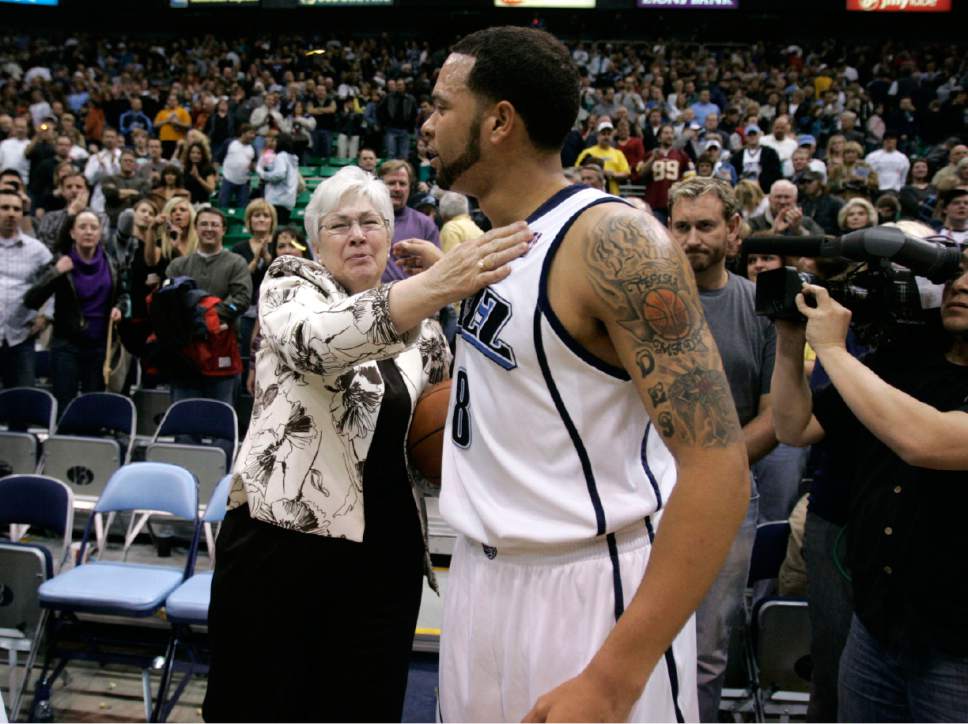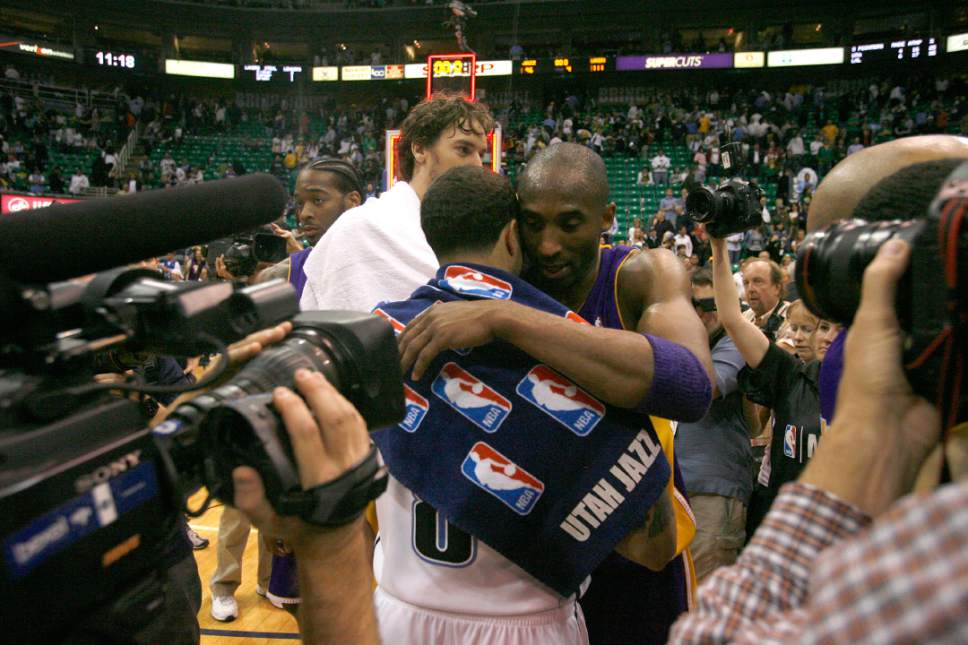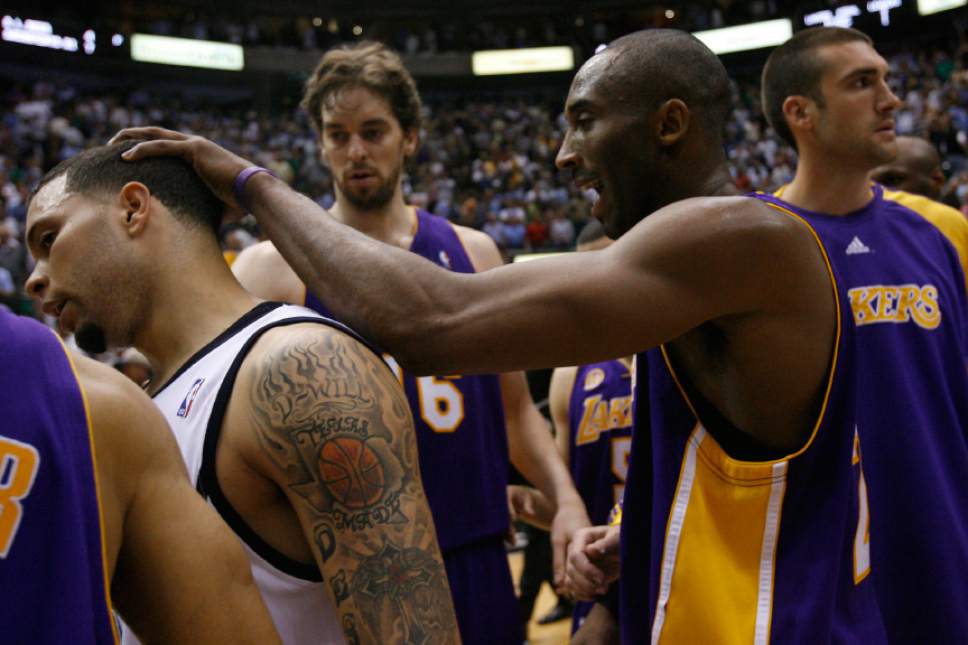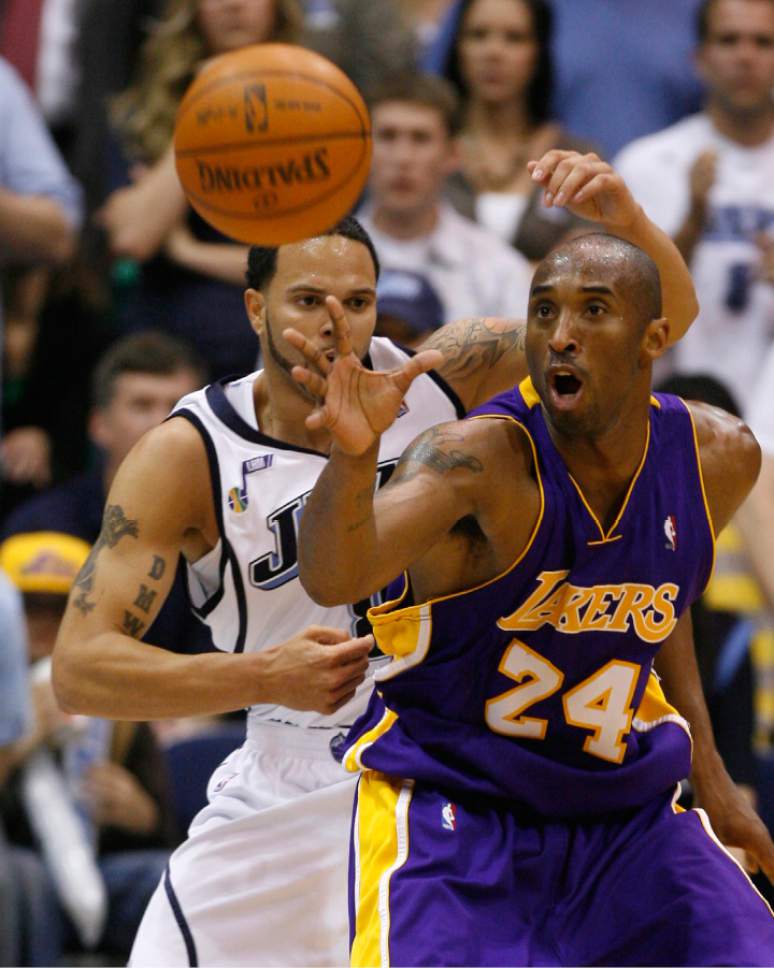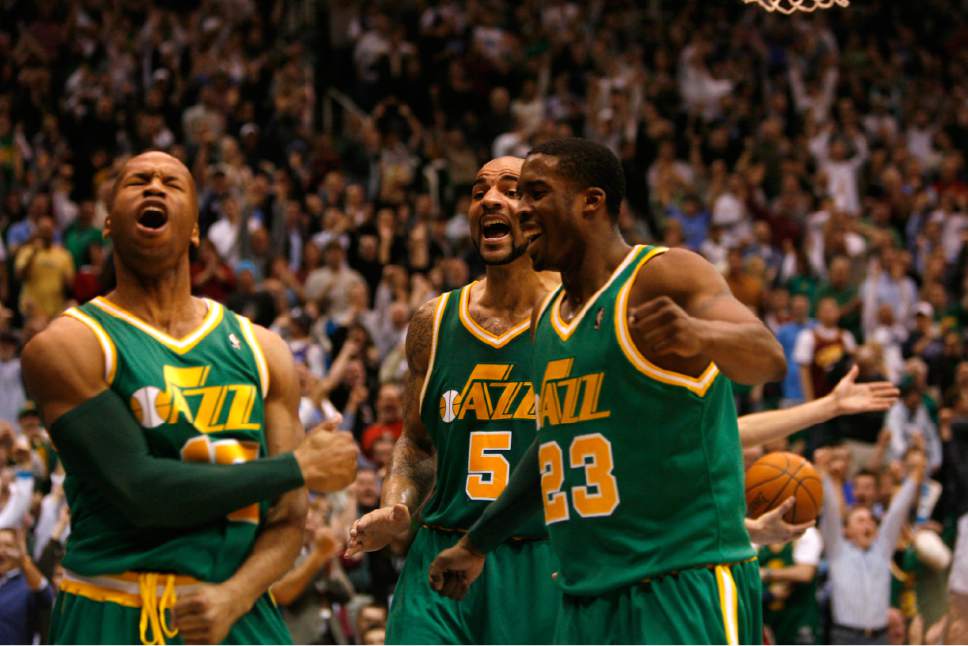This is an archived article that was published on sltrib.com in 2017, and information in the article may be outdated. It is provided only for personal research purposes and may not be reprinted.
The Jazz have clawed their way back to the level nobody ever thought was good enough. That means they have more to do.
This team needs to produce a playoff breakthrough, and not merely by hitting my benchmark of winning one game as they face the Los Angeles Clippers. That's all I've asked of the Jazz lately, to get into the playoffs and win a game — never mind a best-of-seven series — for the first time since April 30, 2010.
Seven years is a long, long time between playoff victories. Detroit, Sacramento and Minnesota are the only other NBA teams without a postseason win since the Jazz beat Denver in a clinching Game 6 of a first-round series.
The Jazz of that era don't get enough credit around here. Those Deron Williams/Carlos Boozer teams won an average of 51.5 games in four seasons and took four playoff series victories, the only problem being that they ran into the No. 1-seeded Los Angeles Lakers in the playoffs in three straight years.
That 2010 series with Denver remains memorable, considering what has transpired since. The triumph represented some of coach Jerry Sloan's best work, amid injuries to Mehmet Okur and Andrei Kirilenko.
Then the Jazz were swept by the Lakers in the Western Conference semifinals. The restructuring of the roster began that summer when Gordon Hayward was drafted and Boozer, Wesley Matthews and Kyle Korver left as free agents. The process accelerated the next February when Williams was traded. General manager Dennis Lindsey's rebuilding job and Quin Snyder's coaching have brought the Jazz to this point, back in the playoffs for the first time since being swept by San Antonio in 2012.
Five years is a long time. Seven years is longer. Think about the key figures in the Jazz's most recent playoff win: In Game 6 vs. Denver, Matthews scored 23 points, Boozer posted 22 points and 20 rebounds and Williams, Korver, Paul Millsap and C.J. Miles made big contributions. Kyrylo Fesenko, Sundiata Gaines, Ronnie Price, Kosta Koufos and Othyus Jeffers also appeared in Game 6.
Those guys will maintain a prominent position in Jazz history until Rudy Gobert and Hayward do something to displace them. The Williams/Boozer teams were viewed as having a ceiling, while the Gobert/Hayward Jazz have more promise. The big question is whether Hayward will re-sign with the Jazz as a free agent this summer, and it will help if point guard George Hill also stays in Utah.
Jazz fans have lived through some tough times since 2010. The Jazz won a playoff series in 1984, the franchise's fifth season in Utah, so this is their longest stretch in this market without winning a playoff game.
Even one victory vs. the Clippers would be meaningful, considering the landscape of the Jazz in this decade. The trouble is that Hayward's standards are higher than mine. Losing a first-round series to the Clippers in five games may not persuade Hayward that the Jazz's trajectory is encouraging enough to make him stay here.
As Gobert said in a HoopsHype.com interview, "I'm just going to ask him, 'Do you want to win a championship?' "
That's a tricky question. Hayward's avenue to an NBA title would be easier elsewhere than in the West, where the Jazz always will have to deal with Golden State.
Hayward logically needs some proof that the Jazz can compete with the Warriors in the coming years. The only way that will become apparent is if the Jazz beat the Clippers in the first round, then play well against Golden State in the West semifinals.
Hayward's role clearly goes beyond watching and evaluating his teammates in the playoffs. His own performance will play a big part in how anyone judges the Jazz's future, adding another layer to the discussion. Seven years after the Jazz drafted him, Hayward is a variable right now — not just this summer.
Twitter: @tribkurt


